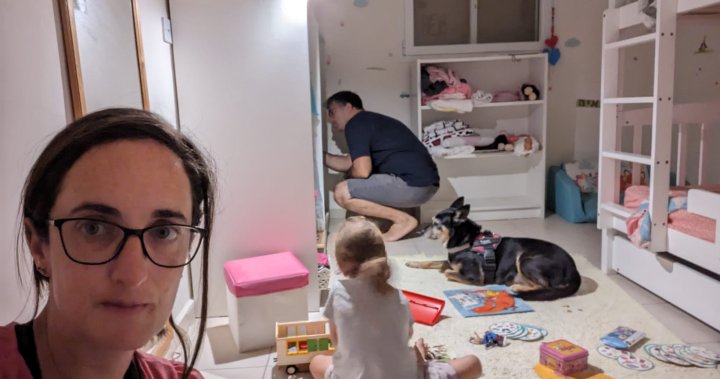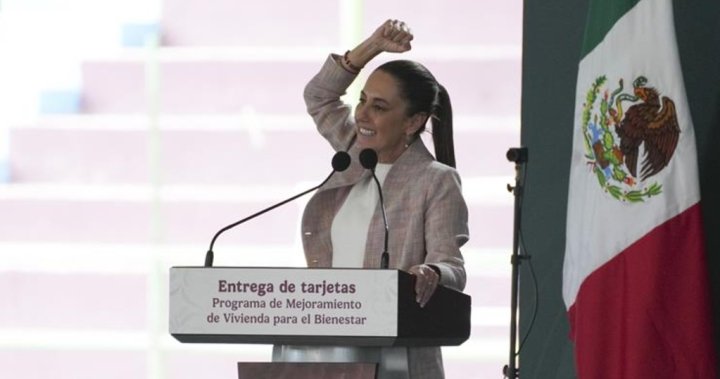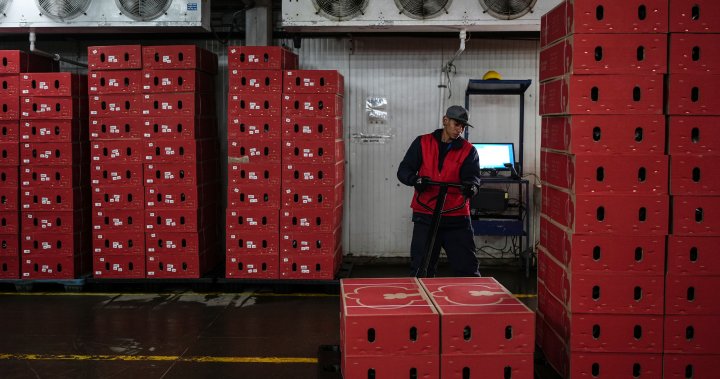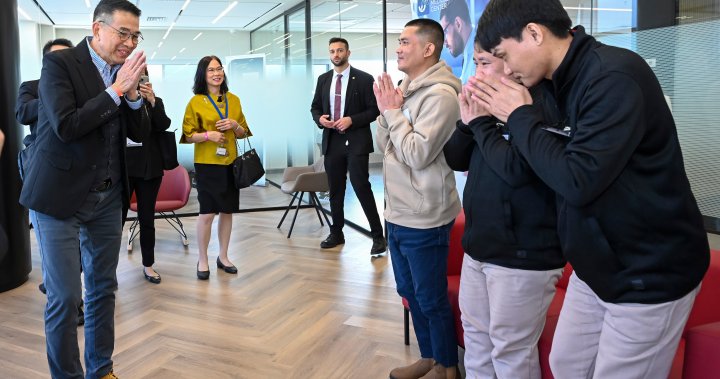‘Like the apocalypse’: A year after Oct. 7, Israeli survivor faces trauma – National

WARNING: This story contained graphic descriptions of violence that may be disturbing to some readers. Discretion is advised.
A year after Hamas’ deadly Oct. 7, 2023, attack on southern Israel, one survivor says finding an answer to how she is coping with the trauma of that day is difficult.
“The short version is I’m fine,” Galia Sopher told Mercedes Stephenson in an interview that aired Sunday on The West Block. “I’m alive, I’m healthy, I have a beautiful, lovely family.
“So it’s easy to say we are good. But on the other hand, we are not. I’m not.”
About 1,200 people were killed in the attack, which sparked Israel’s military offensive in Gaza that has killed over 41,000 people in the Palestinian territory, according to Hamas-run health officials’ figures that don’t differentiate between civilians and militants.

The violence has since escalated into a wider conflict in the Middle East between other Iran-backed groups including Hezbollah in Lebanon.
Roughly 100 of the 250 hostages taken by Hamas in the Oct. 7 attack are still believed to be held inside Gaza, and ceasefire talks to secure their release have been stalled for several weeks.
Sopher was camping with her two young daughters and other families outside her kibbutz, Mefalsim, which sits just three kilometres from the Israel-Gaza border, when Hamas began its attack in the early morning hours. Her husband was at home.
She quickly realized what had first sounded like thunder before a rainstorm was the sound of thousands of rockets exploding over Israel.
“It kept going and going and going,” Sopher said.
Her instinct from years of living in close proximity to the Gaza Strip, which has long seen conflicts between Israel and Hamas, told her to shield her daughters with her body inside their tent as the explosions continued.

Get daily National news
Get the day’s top news, political, economic, and current affairs headlines, delivered to your inbox once a day.
“I grabbed my phone and I called my husband, like, ‘Come pick us up.’ And it went straight to voicemail. And I’m wondering, ‘What do I do?’” she said.
“While I’m trying to think and trying to keep (my daughters) calm, I’m like, ‘I can’t hear anyone outside.’ We’re 30 families. There’s a lot of bombing, like a lot of bombs going on. Why are children not crying? What’s going on?’”

Amid the confusion, armed volunteers helped Sopher and her two small girls into a vehicle, speeding them to their home in Mefalsim where her husband was still safe.
Volunteer security forces have been credited with fighting off Hamas militants as they attacked Mefalsim and preventing any deaths inside the community.
Inside their home, Sopher said, there was no electricity. The family hunkered down with only the lights on their smartphones. They tried to distract the girls with play while trying to stay as quiet as possible.
“How do you tell a three-year-old, ‘Shut up, because there might be bad people outside,’” Sopher said.
Several hours after the attack had begun, the family received a message that it was finally safe to flee the area, and members of the Israeli Defence Forces helped them to a waiting vehicle.
“You could see they were scared,” Sopher said.
As they drove, Sopher saw the horrific aftermath of what had transpired over the past several hours.
“It was like the apocalypse,” she said. “I don’t know if you’ve seen The Walking Dead, but it was nothing short of that, just in real life. Bodies there, burnt cars over there.
“You can’t believe it. Like, am I in a movie? Is this real?”
She said the smell is what sticks in her memory the most.
“You put the pieces together later of, ‘My God, that’s what I was smelling: it wasn’t the bonfire that was lit the night before. It was houses burning, people burning,” she said.
The military took Sopher and her family to the central Israeli city of Netanya, where they stayed for a week with about 1,000 of their neighbours before travelling to Cyprus, where they still live today.

Sopher said despite no deaths in Mefalsim itself, her family and others in her community lost friends and loved ones in the attack.
She and her husband are both in therapy, and Sopher said her daughters recognize what they went through that day and are starting to talk openly about it.
“No three-year-old, no six-year-old should know, what does kidnap mean,” she said.
As she continues to process her trauma, Sopher said she has criticisms about Israel’s response. She noted that the IDF members who helped them flee their home took hours to arrive after Hamas launched their attack.
“That’s one of the things that makes me so angry,” she said.
“We have the strongest army, the best army, all the things that we’ve been told over the years. Where were they?”

She also questions why Israel’s domestic intelligence agencies were unable to stop the attack before it began. To this day, she and the rest of the Israeli population have been told little about what the government knew about Hamas’ plans.
“I’m still waiting to know who knew what and why they didn’t do anything,” she said.
“It’s very sad that we’re small little pieces for the big people that are ruling our lives.”
But Sopher saves her harshest words for the Hamas militants who caused the trauma she still confronts today.
“They’re bad guys,” she said when asked how she would describe the terrorists to her daughters. “Bad guys that for no other reason than being bad wanted to do bad things to us, and we succeeded because we’re alive and happy and healthy and we need to remain that way.
“Now come make your bed, because you’re not exempt from that.”








